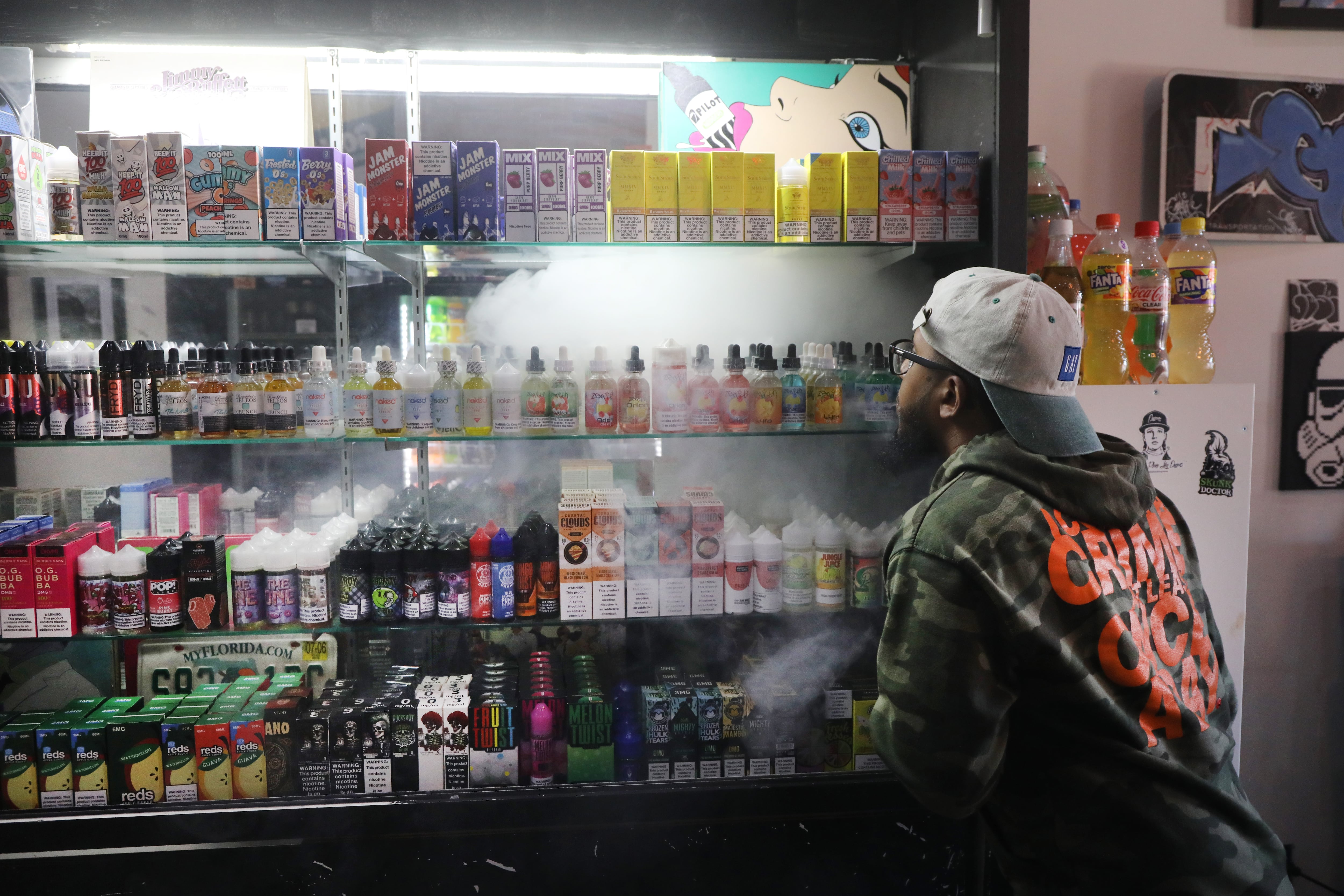A key public health priority for Colorado Democrats this spring — banning the sale of flavored nicotine products in an effort to reduce teen use — could reduce funding for another top priority: free preschool for 4-year-olds.
The two issues are coming to a head as lawmakers debate the flavor ban bill at the same time as a bill outlining key details of the state’s universal preschool program, which will be partly funded by a voter-approved nicotine tax. If passed in its current form, the flavor ban bill could take a multimillion-dollar bite out of the preschool program as it rolls out in 2023-24, according to state estimates.
The flavor ban bill has been amended multiple times in the last few weeks and could be amended further. The final version could change the state’s original estimate that the preschool program could lose about $25 million in funding in its launch year.
Supporters of the flavor ban say reducing youth nicotine use and providing preschool are both important for children, and that universal preschool does not rely solely on funding from the nicotine tax.
Bill Jaeger, vice president of early childhood and policy initiatives at the Colorado Children’s Campaign, noted that state funding for Colorado’s existing preschool program will combine with nicotine tax proceeds to fund the universal program. In addition, he said, the nicotine tax that voters approved in 2020 scales up over several years — and so will yield increased revenue for preschool over time.
“I think there are a lot of uncertainties around the genuine revenue impact of the HB 1064 giving a lot of moving pieces both in terms of the scope of the proposal and market changes,” he said by email.
State analysts originally estimated the nicotine tax would bring in about $165 million for preschool in 2023-24. That amount, plus around $137 million from the state’s current preschool program, would yield $302 million during the program’s first year. But if the flavor ban passes, that total could take a $25 million hit, representing an 8% decrease in available funding.
It’s unclear how much money the state needs to offer universal preschool, partly because leaders haven’t determined how much they’ll pay for each slot and because it’s unclear how many families will want the half-day slots.
Although Democratic lawmakers have so far beaten back attempts to defang the flavor ban bill, their biggest remaining hurdle could be Gov. Jared Polis, a fellow Democrat who has promised to launch universal preschool since he was on the campaign trail in 2018.
Conor Cahill, a spokesman for Polis, said the governor doesn’t support the flavor ban bill as written.
“As a general philosophy the governor prefers local control because our local governments are closest to the people they represent, and can determine whether additional regulations are warranted above and beyond what the state requires,” Cahill said by email.
The flavor ban bill is sponsored by three Democrats, state Rep. Kyle Mullica, of Northglenn; state Rep. Jennifer Bacon, of Denver; and state Sen. Rhonda Fields, of Aurora; and one Republican, state Sen. Kevin Priola, of Brighton.
During recent legislative committee hearings, the flavor ban bill drew significant opposition from vape shop owners who argued that a flavor ban would destroy their businesses and redirect local dollars to online sellers of nicotine products.
But supporters of the measure cited Colorado’s high teen vaping rate and said tax increases alone haven’t done enough to drive down youth access.
Jeanne McQueeney, an Eagle County commissioner, said, “Even with the high price of tobacco products, kids are still drawn to the flavors,” she said. “Whether the ignorance of youth or deceptive marketing practices, they still believe that vaping isn’t harmful.”
A Republican lawmaker noted the uncomfortable tension in relying on money from cigarettes, vaping, and marijuana to pay for social goods.
“We have a real problem in the state. … We have created a system of sin tax to fund essential public services,” said state Rep. Matt Soper, a Delta Republican, during a recent House Finance Committee hearing on the flavor ban bill.
In addition to the universal preschool program, he pointed to a longtime grant program for building and renovating schools that relies on revenue from a marijuana tax.
Sin taxes aim to discourage harmful behaviors by making them more costly. But from a revenue perspective, such taxes are a double-edged sword because if they succeed in changing behavior, people spend less money on the sin and generate less money for the government.
Colorado is hardly the only state using sin taxes to fund social programs. Many others use proceeds from nicotine, marijuana, or state lotteries to pay for health, early childhood, or K-12 education programs. Philadelphia pays for its public preschool program with revenue from a sales tax on sugary beverages.
Colorado voters are also a lot more receptive to sin taxes. Proposition EE, the measure that imposed the nicotine tax, passed easily, while repeated efforts to increase school funding through other taxes have failed.
The nicotine flavor ban bill most recently passed the House Finance Committee on a 7-4 party line vote. It will next be heard in the House Appropriations Committee, then the full House.
Correction: An earlier version of this article cited an incorrect amount for the funding from Colorado’s existing preschool program that will go toward universal preschool in the first year of the program. It’s around $137 million, not $100 million. That means the flavor ban could reduce available preschool funding by 8%, not 9%.
Ann Schimke is a senior reporter at Chalkbeat, covering early childhood issues and early literacy. Contact Ann at aschimke@chalkbeat.org.





